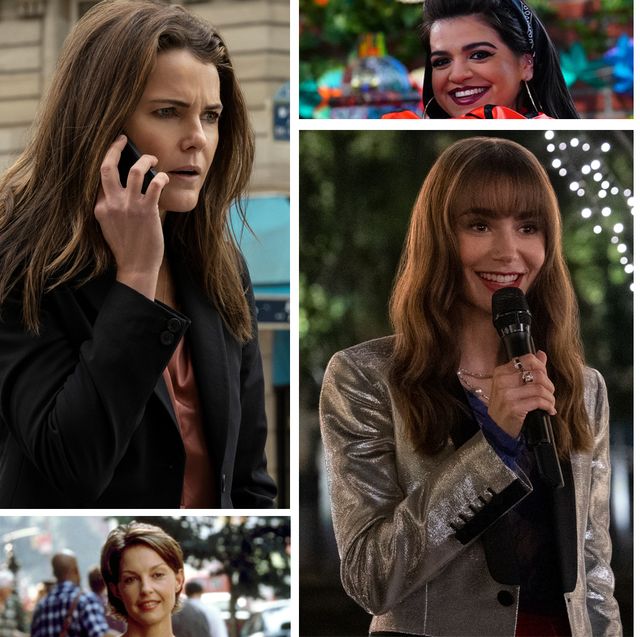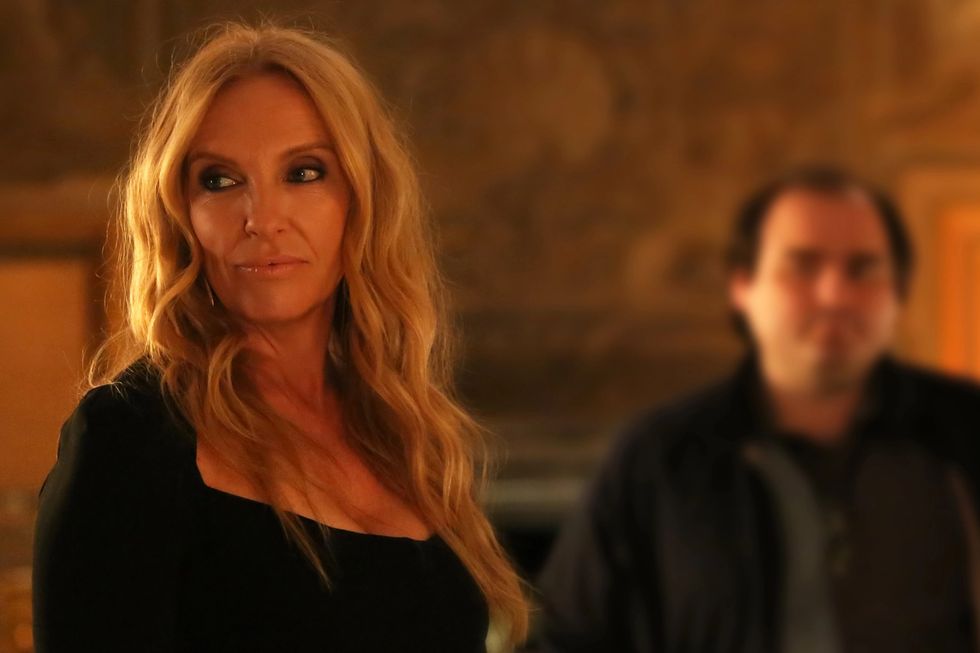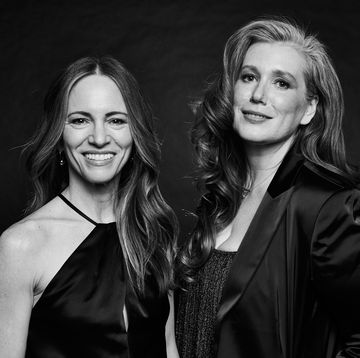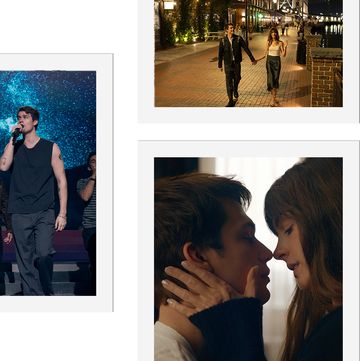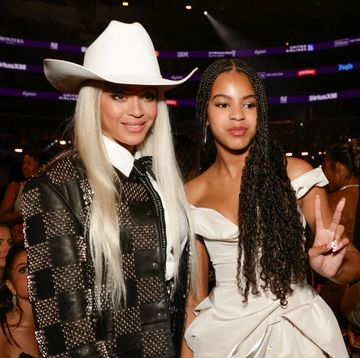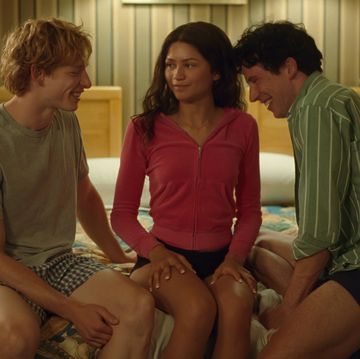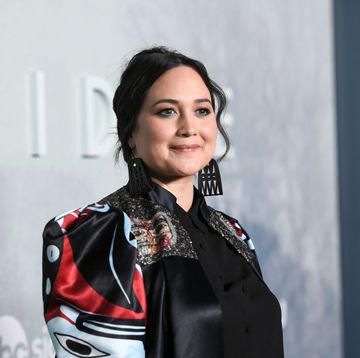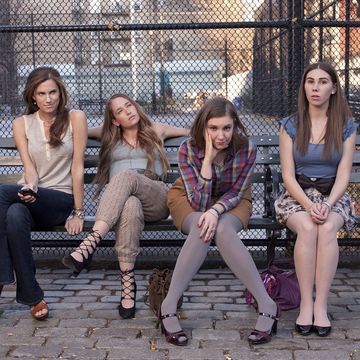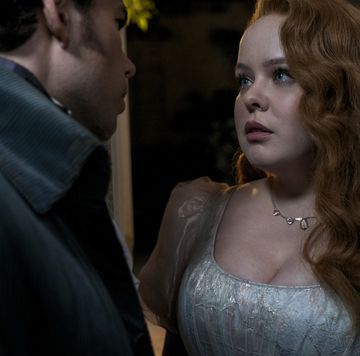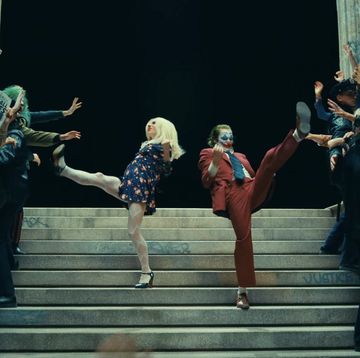I listen to an embarrassing number of podcasts and about a week ago, they all started advertising the movie Mafia Mama. Now, that alone is not shocking–I’m the prime demographic for that movie–a freshly middle-aged woman who still cares enough about pop culture to at least attempt to see a movie in the theater. The marketing worked–I now actually want to see Mafia Mama and will probably use one of the weekends that my daughter is with my ex to take some precious leisure time and watch Toni Collette and Monica Bellucci engage in Italian shenanigans.
I want to see Mafia Mama precisely because I know it’s going to be fine—and just fine. It is not a movie I feel like I have to see to be able to make interesting conversations with fellow adults, like Tar. It’s not a movie that signals so bad, it's good camp like M3GAN. Mafia Mama will join the ranks of so many movies–Book Club; 80 for Brady; Ford v Ferrari—that aren’t masterpieces but also aren’t congratulating the audience for their edgily bad taste. They are movies that are aggressively middle of the road, the apex of mid entertainment, and I love them very much.
Crucially, mid entertainment is anti-discourse. Or maybe it's more accurate to call it discourse-proof. The drive to create discourse has taken over nearly every aspect of narrative media. Yellowjackets is the subject of thousand-word essays, deconstructing every angle of a very entertaining show that is also pretty transparent about its sympathies and thesis statement. The trashy multiverse of the Real Housewives franchise have spawned whole academic sub-disciplines on race, class and power. Even the most basic sitcoms of our youth–Boy Meets World and Clarissa Explains It All and so many others–are the subject of season-long recap podcasts.
The pirated episodes of the British dating show First Dates that I watch on YouTube, however, exist in a happy plane outside of the ravenous commentary that calls everything “problematic”. We live in an age where people share screenshots of Logan Roy’s handwriting from Succession or create the TikTok equivalent of the Zapueder film out of 10 seconds of Love Is Blind footage to figure out if a contestant actually slapped a woman on the ass at his own botched wedding. Mid entertainment resists all of this. There’s nothing viral about Gina Rodriguez saying rote rom-com dialogue to Lakeith Stanfield in Someone Great but I will happily watch that movie over and over again.
So many people have written about the attention economy. We live in a world where we are constantly being reminded that we must pay attention, though the things we are being asked to pay attention to–political corruption, the erosion of human rights, climate change, systemic racism–are all, ironically, things that cannot be combatted solely by knowing a lot about them. The result of paying attention is either stunning yourself into paralyzing anxiety or sinking deep into depression or rage, or both. This insistence on hyper fixation has seeped into our culture’s commercial art, so that it is not enough that a tv show or movie is clever or passably entertaining–they become “essential viewing”, things you have to have an opinion about, things that need your full attention. The fallacy, of course, is the idea that scrutinizing these cultural products for their connection to all of our ills is the same work as actually trying to resolve those ills. Sadly, it does not work that way. Demanding the casting of Black billionaires on Succession doesn’t do anything meaningful around questions of race and income inequality and kind of misses the whole point of the show.
Mid entertainment does not make these demands. When I watch Brittany Runs a Marathon I know that Brittany is going to run that marathon and learn some lessons about love and loss along the way. No more, no less, and I don’t have to talk about it with anyone to make it make sense. I also can let my mind wander within the candy-colored confines of the movie because I know I will understand how Brittany crossed the finish line whether I’m analyzing every camera angle and line of dialogue or not.
Now, here is where many readers will look at my examples of mid and become offended. People are reluctant to declare things mid because of the fear of being branded a snob. Americans, especially, want to believe that we all have unique, eclectic tastes that signal both our intelligence and the fact that we don’t take ourselves too seriously. Confusingly, genre movies, especially genres enjoyed by women and femmes of all stripes, tend to be labeled mid by definition. But I want to be clear–movies like Miss Congeniality or Legally Blonde are excellence in their genre. They have a clear voice and memorable characters and eminently quotable dialogue. Someone Like You, however, is mid. Shrek is animation excellence. Over the Hedge, the 2006 attempt of Dreamworks to capture the Shrek magic that I’m not even sure Avril Lavigne remembers she starred in, is mid.
Crucially, mid is not excellence. There's no point of view in mid. There's no sense of authorship or voice. Mid is media that has gone through multiple writing rooms and producers until all the flavor has seeped out and you have the equivalent of a frozen Stouffer's mac and cheese—comforting, bland, free of taste. CBS built a whole network around the concept of mid entertainment and rightfully experienced network domination in the last, dying days of linear tv.
Mid can be politicized, for sure–everything has always been that way. When Warner Bros Entertainment announced that they would be dropping the name HBO from HBO Max because those initials “intimidated” viewers, it was taken as a final assault on the expressive, radical (well, as radical as commercial television made by a publicly traded media conglomerate can be) shows that HBO is known for. The name change came after the cancellation of shows by Black and Brown and Queer creators and the wiping of marginalized shows from the channel’s streaming sites. Mid, here, became a dog whistle for conservative, and viewers were on the defensive.
But mid does not need to be this. True equality and artistic freedom is to recognize the comforts of mid that cross the things that divide us. House Hunters is mid but so is Harlem. Bling Empire: New York is mid and so is Lopez vs. Lopez. A true meritocracy would allow us to see any of us–Black, Brown, White; rich and poor; any gender; any creed–as capable of existing outside of the harried constraints of discourse, and simply be mid.
